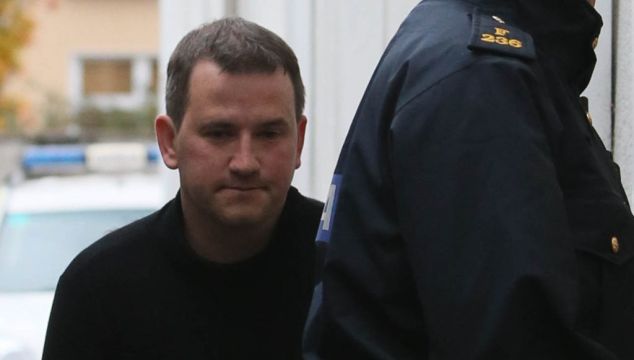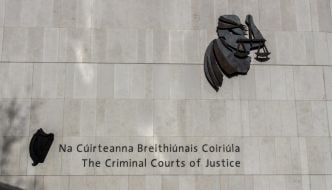Convicted killer Graham Dwyer may have to wait until the summer to hear the outcome of his last-ditch appeal to overturn his conviction for the murder of Elaine O’Hara.
The judgment by the Supreme Court is to be delivered after it has given a ruling in two appeals raising similar issues about the admissibility of phone data at trials.
Dwyer has embarked on a protracted bid to overturn his 2015 conviction for the murder of childcare worker Elaine O’Hara. The Court of Appeal dismissed his appeal in March 2023.
In January, the seven-judge Supreme Court heard legal submissions on the latest bid by Dwyer, who has already served nine years of a life sentence for the murder of the 36-year-old woman.
On Wednesday, Chief Justice Donal O’Donnell said he anticipates a decision in Dwyer’s latest Supreme Court bid will follow at some point after judgment is given in appeals by Caolan Smyth (31) and Gary McAreavey (56).
Smyth, formerly of Cuillean Court, Donore, Co Meath, is appealing against his conviction for the attempted murder of James “Mago” Gately and possession of a firearm with intent to endanger life. McAreavey, formerly of Gort Nua, Castlebellingham, Co Louth, is seeking to overturn his conviction for the offence of assisting an offender. Both deny the charges.
Rulings in those cases were “very close” to being circulated among the judges of the top court, Chief Justice O'Donnell said, and he hoped they were “very close to being agreed”. The Chief Justice said he anticipated this decision would be given before the Supreme Court holds its next list for updating judgment progress.
He said he hoped a decision in the Dwyer case would be given “within a reasonable time” after the next update list, which, it is understood, will likely be held in June.
Dwyer is serving a life sentence after he was convicted at the Central Criminal Court of Ms O’Hara. He denies the charge.
The 36-year-old childcare worker was last seen in August 2012 in a park in Shanganagh, south Dublin. Some of her remains were found on Killakee mountain just over a year later, and she was identified from dental records.
Dwyer’s trial was told a Nokia phone found in Vartry Reservoir in Co Wicklow in 2013 was used to send Ms O’Hara messages, including one about stabbing, culminating in a text dated August 22nd, 2012 – the last day she was seen – to “go down to the shore and wait”.
Dwyer’s lawyers argued before a seven-judge Supreme Court that phone call data evidence should not have been admitted to his criminal trial because it was gathered and retained under a 2011 Irish law that was struck down by the Court of Justice of the European Union (CJEU) in an earlier leg of Dwyer’s case.
The Director of Public Prosecutions contested the appeal, submitting the court must strike a balance between the competing interests of protecting the constitutional rights of citizens and ensuring the administration of justice is not brought into disrepute by refusing to admit “highly probative” evidence.
Central to the Supreme Court appeals of Smyth and McAreavey is an argument that certain telephone data evidence, obtained under the same 2011 law, was inadmissible due to legal breaches.
They pleaded not guilty to their respective charges but were convicted by the Special Criminal Court in January 2021.
Mr Gately, who the Criminal Assets Bureau alleges is heavily involved with an organised crime group, was shot five times by the driver of a car that pulled up beside him at a petrol station on Clonshaugh Road on May 10th, 2017.
Smyth was alleged to be the shooter, while McAreavey was alleged to have purchased petrol to destroy the vehicle, which was later found burnt out.
Neither man conceded ownership of two unregistered phones used to correlate movements of a car with cell sites.
Smyth and McAreavey were convicted by the Special Criminal Court before the Court of Justice of the EU (CJEU) upheld Dwyer’s challenge to Ireland’s metadata regime as set out in the Communications (Retention of Data) Act 2011.
Their appeals to the Court of Appeal were dismissed after the CJEU ruled in Dwyer’s case. That court held that the 2011 Act was still the law of the land when the investigation into the attempted murder was carried out and thus it enjoyed a presumption of constitutionality.







